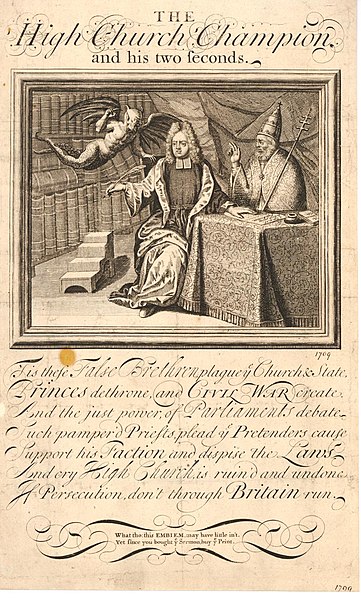The Oxford Movement was a movement of high church members of the Church of England which began in the 1830s and eventually developed into Anglo-Catholicism. The movement, whose original devotees were mostly associated with the University of Oxford, argued for the reinstatement of some older Christian traditions of faith and their inclusion into Anglican liturgy and theology. They thought of Anglicanism as one of three branches of the "one, holy, catholic, and apostolic" Christian church. Many key participants subsequently converted to Roman Catholicism.
Edward Bouverie Pusey
Keble College, Oxford, founded in 1870, was named after John Keble, a Tractarian, by the influence of Edward Pusey, another Tractarian
The term high church refers to beliefs and practices of Christian ecclesiology, liturgy, and theology that emphasize "ritual, priestly authority, [and] sacraments". Although used in connection with various Christian traditions, the term originated in and has been principally associated with the Anglican tradition, where it describes churches using a number of ritual practices associated in the popular mind with Roman Catholicism and Eastern Orthodoxy. The opposite tradition is low church. Contemporary media discussing Anglican churches often prefer the terms evangelical to low church and Anglo-Catholic to high church, even though their meanings do not exactly correspond. Other contemporary denominations that contain high church wings include some Lutheran, Presbyterian, and Methodist churches.
Satirical broadside of 1709/10 accusing Henry Sacheverell, "The High Church Champion," of "Popery."
Eucharistic procession by the Church of St. Mary Magdalene (Toronto)




